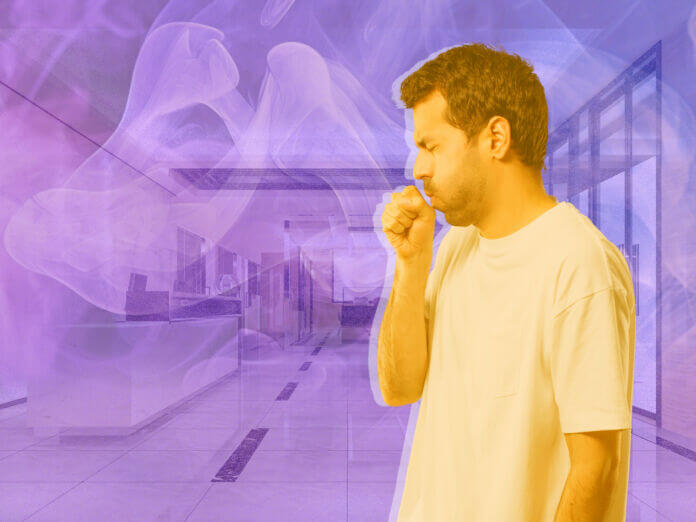
Brenna Lafferty Campbell – September 12, 2024
Collected at: https://www.iotforall.com/how-iot-improves-indoor-air-quality
My husband worked at 3M for 10 years and knows a thing or two about air filters. Our car and home air filters are dutifully checked and cleaned regularly, which helps the air conditioning cool better and mitigates a variety of seasonal allergies our family suffers from. Indoor air quality IoT solutions can make this process even easier and more effective.
Like many people who think about how things work, Bruce is not shy about pulling a screwdriver from his pocket and tinkering at wont—wherever he is. It could be in our friends’ homes, our friends’ parents’ homes, a restaurant, at the physical therapy office, in the middle of a job interview, etc. You know the type. Better, you probably are the type.
Travel is Hard; Staying Cool is Nearly Impossible
As a salesman, Bruce travels weekly for work and stays overnight in a lot of hotels. Travel is hard and he has developed preferences for certain features in hotel rooms to ensure his stay is as restful as possible: top floor, non-smoking, good shower head. However, the number one quality that will make or break Bruce’s sanity while traveling is the room temperature.
If the room feels humid or the air conditioning doesn’t blow cool air immediately, out comes the screwdriver. Typically, Bruce will find 0.5 – 1.0 inches of lint and dust on the room’s air conditioner filter (4 inches on a bad day) and can easily remove it, just as one would clean a laundry dryer filter. Once, he discovered a brand-new filter, but it was unfortunately wedged into a unit casing that was covered in black mold. Simple cleaning measures often improve the functionality of the HVAC in a hotel room, but not always. Sometimes it seems like the system isn’t powerful enough to do its job. This is where IoT systems can vastly improve indoor air quality.
Cost of Poor IAQ to Guests
When lint blocks the airflow of an HVAC system it makes a room not only warmer but potentially more humid. Unmitigated humidity creates the perfect environment for mold to grow. Numerous studies show that breathing volatile organic compounds (VOCs) like mold leads to adverse health effects, such as coughing, eye irritation, headaches, aggravated asthma, allergic reactions, and drowsiness. Plus, poor indoor air quality (IAQ), from temperature to humidity, bothers guests, making repeat visits unlikely.
Cost of Poor IAQ to Hotel
In addition to managing guest dissatisfaction, there are other hidden costs to the hotel. First, dirty air filters require an HVAC system to work harder than intended and then it can still seem like it is underperforming. The system will use more energy, run cycles at a higher intensity, and ultimately have a shorter useful life due to excessive wear and tear. This translates into higher electric bills, a larger carbon footprint, poor appliance performance, and higher operational expenses. IoT could be the solution.
Cost Effective Innovation
A hotel might experience staff shortages, limited access to operational support, or even the absence of an equipment cleaning schedule. IoT solutions can mitigate these challenges because their automated alerts can trigger location-specific actions and improve indoor air quality. Rather than manually checking the status of each HVAC filter based on a periodic schedule (or never), IoT sensors that monitor airflow, filter conditions, and indoor air quality will alert hotel management to HVAC issues. From here, management can deploy staff specifically to clean or replace filters and maintain optimal system performance.
With clean filters and optimized operations, IoT solutions enhance energy efficiency, by lowering utility costs and reducing environmental impact. Some sensors and solutions can also adjust to occupancy and weather changes, further improving performance.
Transforming Hospitality and Indoor Air Quality with IoT
While IoT implementation requires upfront investment, the long-term benefits far outweigh the initial costs. By integrating IoT into hotel management, properties can revolutionize their operations, shifting from reactive to proactive strategies. This transformation ensures the following:
- Cleaner, more efficient climate control
- Optimized operational costs
- Enhanced guest comfort
- Prevention of system failures and costly emergency repairs
In today’s fiercely competitive hospitality landscape, IoT solutions provide hotels with a distinct edge. They not only boost operational efficiency but also significantly elevate guest satisfaction. This dual advantage positions IoT-enabled hotels at the forefront of the industry, ready to meet and exceed the evolving expectations of modern travelers, and eliminating the need for individual guests to tinker with air filters.

Leave a Reply